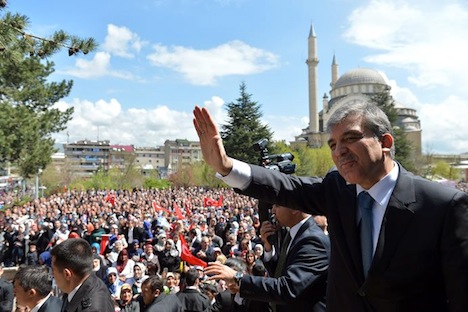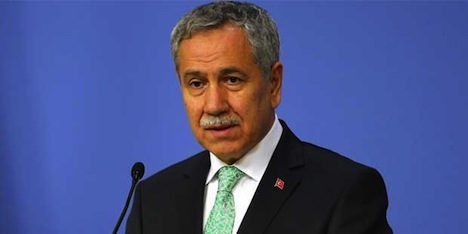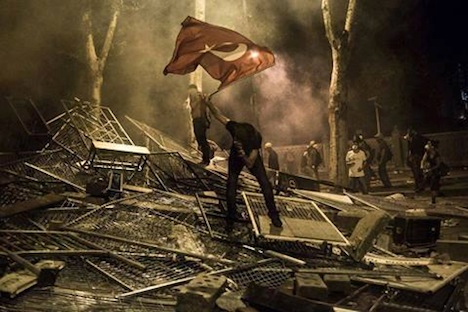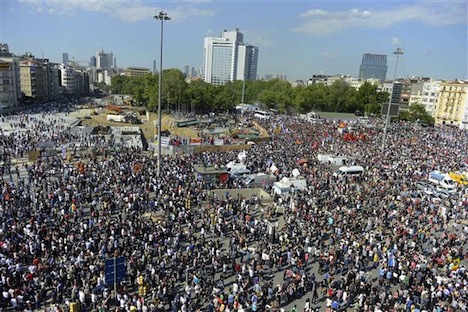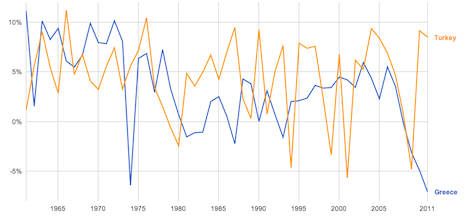10. Turkey presidential election, expected in July.![]()
Turkey will choose its first directly elected president in summer 2014, and it’s long been assumed that the country’s controversial prime minister Recep Tayyip Erdoğan and the leader of the ruling Adalet ve Kalkınma Partisi (AKP, Justice and Development Party), wants the position.
With a record of strong economic growth over the past decade, the presidency just a few months ago seemed like it was Erdoğan’s for the asking. Having vanquished the old Kemalist order — wherein the Turkish military ‘guaranteed’ Turkish democracy by overthrowing Islamists that it didn’t like — Erdoğan showed promise in his early years as prime minister as a leader with the ability to revitalize Turkish political life and to transform Turkey into a truly representative democracy.
But 2013 may become the year in which Erdoğan lost the magic touch with respect to ruling Turkey — the year in which the world finally took notice that he crossed the line from populist democracy into soft authoritarianism, though the signs were always there for anyone to see in the way that his government slowly squeezed out political rivals (most notably through the series of politically motivated ‘Ergenekon’ trials). His heavy-handed response to the Gezi Park demonstrations in May/June 2013 and the use of force to disperse protestors near Taksim Square showed that Erdoğan’s real weakness wasn’t creeping Islamism within Turkey so much as his disdain for liberal democracy.
Though the Turkish presidency is largely a ceremonial position, with a handful of constitutional duties and other roles in representing Turkey to the rest of the world, Erdoğan hasn’t been shy about indicating his interest in holding the same office that the founder of the modern Turkish state, Mustafa Kemal Atatürk, also once held. He hasn’t also been shy about his interest in amending Turkey’s constitution to transform it into a more powerful US-style presidency.
As the leading figure within Turkey’s ruling party, Erdoğan would have become a president with extraordinary powers, appointing in his place a pliant prime minister — not unlike the relationship that the Russian or French president has with their respect prime ministers when the presidential party holds a parliamentary majority as well.
But within the past couple of weeks, Erdoğan has faced a new internal threat in the form of a corruption crisis that’s already led to the resignation of three members of his cabinet, causing an internal rift within Turkey’s Islamist camp between Erdoğan loyalists and a cabal of Gulenists, the followers of Fethullah Gülen, a Turkish cleric who lives in Pennsylvania in self-exile. He leads the Hizmet movement, which boasts the support of around 1 million Turks, including many members of the Turkish bureaucracy, security forces and judiciary.
Turkey’s main opposition party, the Cumhuriyet Halk Partisi (CHP, the Republican People’s Party), is in no shape to win the presidency — even if the AKP hadn’t tilted the political playing field so much in its own favor, the CHP would already have been hampered by weak leadership and its image as the remnants of the old Kemalist order.
So what is Erdoğan to do? If he survives the latest crisis, he may still be able to claim the presidency, but he’ll need to make amends with the Gulenists and with other top members of his own party, who may believe it’s time for Erdoğan to move along quietly. It’s possible that Abdullah Gül (pictured above), Turkey’s president since 2007, a former foreign minister and also a member of the ruling Justice and Development Party, could run for a second term instead. While it was once thought that Gül and Erdoğan might switch places, with Gül becoming prime minister under an Erdoğan presidency, it may well be that Erdoğan limps on as prime minister through the June 2015 parliamentary elections, when the AKP chooses a new figure to attempt to lead it into its second decade in power.
